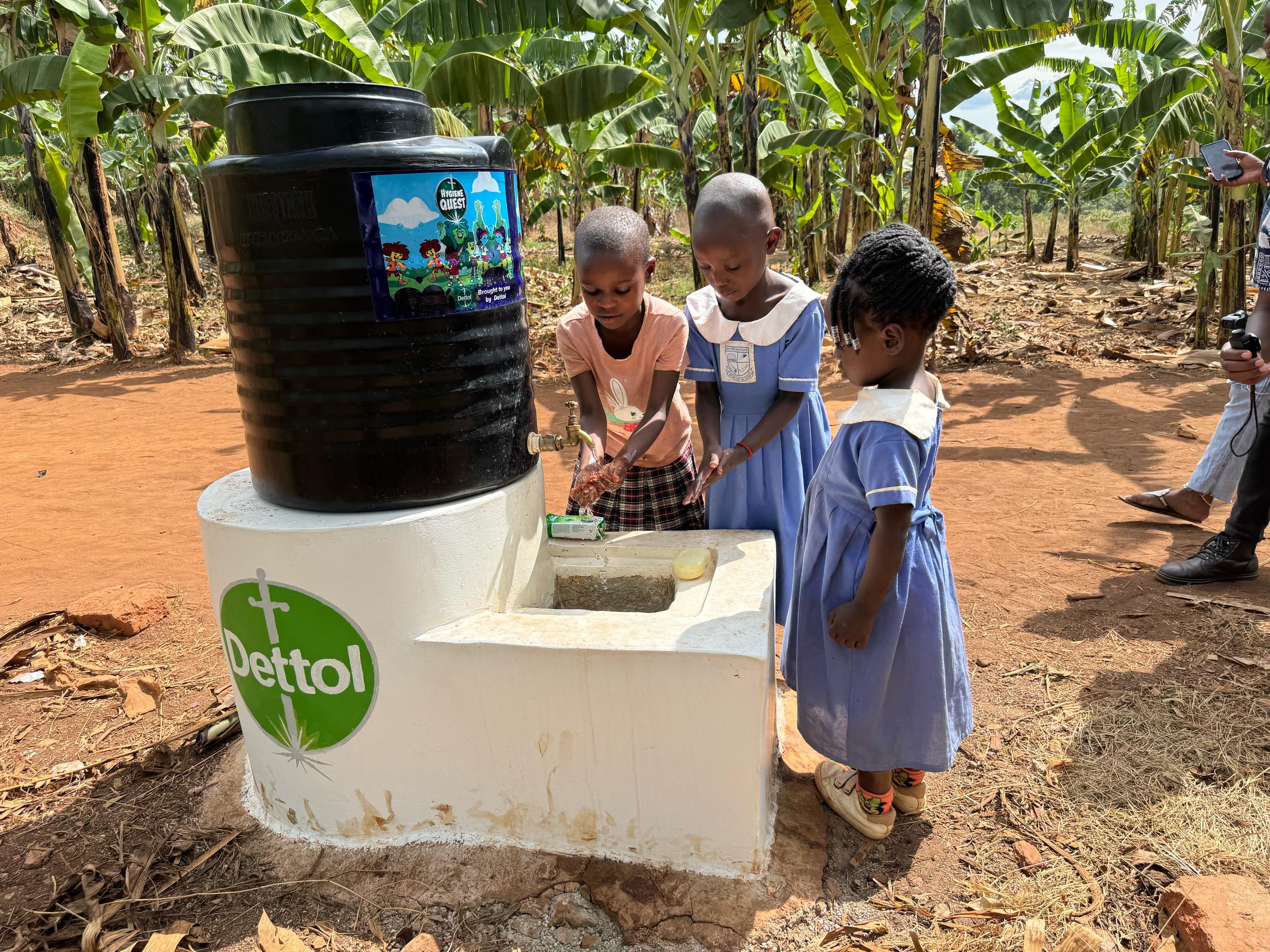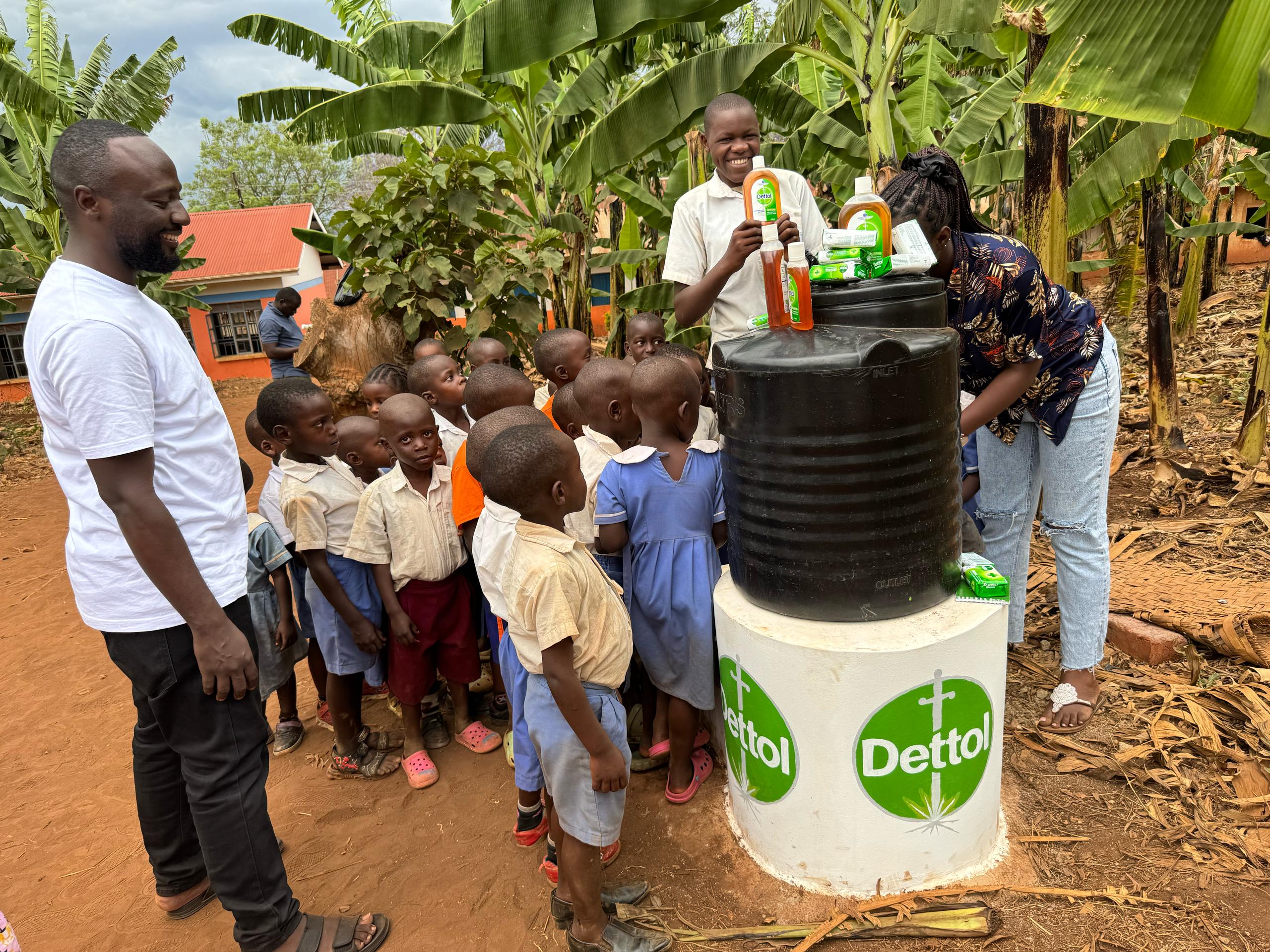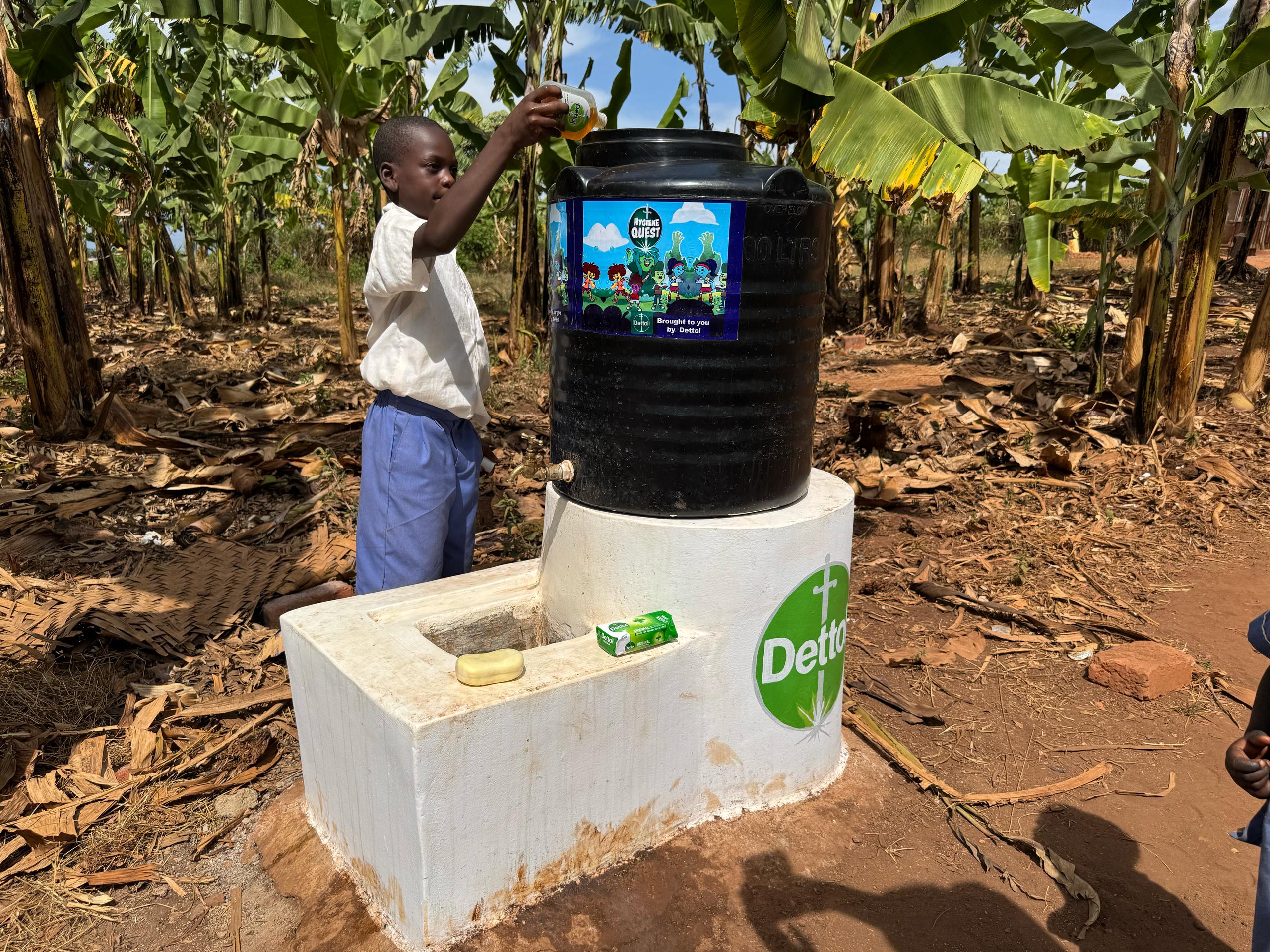Millions of schoolchildren in Uganda have been safeguarded from hygiene-related illnesses following the construction of 1500 handwashing facilities under the Dettol Hygiene Quest Program. The initiative, implemented by Chil Ai with support from Reckitt, aims to improve sanitation in schools across the country.
Despite these efforts, education and health experts warn that poor sanitation remains a major challenge, with many schools still lacking proper hygiene infrastructure. Dilapidated toilets and inadequate handwashing stations continue to expose learners to disease, affecting their health and academic performance.
The Hygiene Quest Uganda initiative targets pre-primary and primary schools in districts with critically insufficient sanitation infrastructure.
Dr. Shamim Nabuuma, Executive Director of Chil-Ai Lab and the project’s focal person, confirmed that 1,500 handwashing stations have been installed in 750 schools, with each school receiving two water tanks. Benefiting districts include Kisoro, Ibanda, Rukungiri, Kanungu, Kasese, Bundibugyo, Rakai, Iganga, and Kamuli.
In addition to handwashing stations, schools received soap and hygiene-related learning materials to encourage better hygiene practices among students.

A visit to several schools revealed that while handwashing facilities have improved, toilets remain in deplorable condition. Many are dilapidated and unhygienic, posing serious health risks to learners.
Ibanda District Health Officer Bamwine Julius attributed the spread of hygiene-related illnesses to cultural practices and the lack of proper facilities.
He noted that children frequently share food without washing their hands, increasing the risk of diseases like diarrhea, cholera, and typhoid, which contribute to absenteeism and poor academic performance.
Robert Nyesigire, an education officer in Ibanda, emphasized the need for continued hygiene education, arguing that providing handwashing facilities is important but ensuring soap availability and consistent sensitization is equally critical. He urged teachers to integrate hygiene education into their lessons to instill lifelong habits in children.

To sustain the program’s impact, Sandra Nabakka, Field Supervisor for Dettol Hygiene Quest, highlighted the importance of educational resources. Over 100,000 hygiene guide booklets have been distributed to students, along with 5,000 booklets for teachers in 500 schools.
These materials outline proper handwashing techniques and help teachers incorporate hygiene education into their curricula.
Edvina Twinomuhangi, headteacher of Rwengwe II Primary School in Ibanda, expressed gratitude for the materials, stating that they would help integrate hygiene lessons into daily teaching, ensuring children develop lifelong hygiene habits.
The project, funded by Reckitt Benckiser—the makers of Dettol—also provided free handwashing soap and other detergents to participating schools.

Despite these improvements, poor toilet facilities remain a major concern in many schools. Ibanda District Chief Administrative Officer Kweyamba Ruhemba acknowledged the sanitation crisis, revealing that only 16 schools in the district have modern toilet facilities.
He pointed out that schools with proper sanitation tend to perform better in national exams and warned that even in schools with modern toilets, learners must be taught how to use them properly. Poor hygiene practices remain a widespread issue, even in urban areas.
The hygiene crisis in Ugandan schools reflects broader challenges across Sub-Saharan Africa. Reports indicate that 779 million people in the region lack basic sanitation services, while 839 million lack access to basic hygiene facilities.
In 2023, malaria caused nearly 600,000 deaths, with 94 percent of cases occurring in Africa. These statistics underscore the urgent need for increased investment in sanitation and hygiene infrastructure across the continent.
While initiatives like the Dettol Hygiene Quest Program have made a positive impact, experts argue that a multi-sectoral approach is necessary to ensure lasting improvements. The government must prioritize hygiene infrastructure in all schools by allocating more resources to sanitation projects. Communities and parents should be actively involved in maintaining school hygiene facilities. Stronger partnerships between NGOs, private companies, and international donors can help scale up interventions. As Uganda continues working toward better school hygiene, sustained efforts, policy changes, and increased funding will be key to ensuring that every child learns in a safe and healthy environment.

